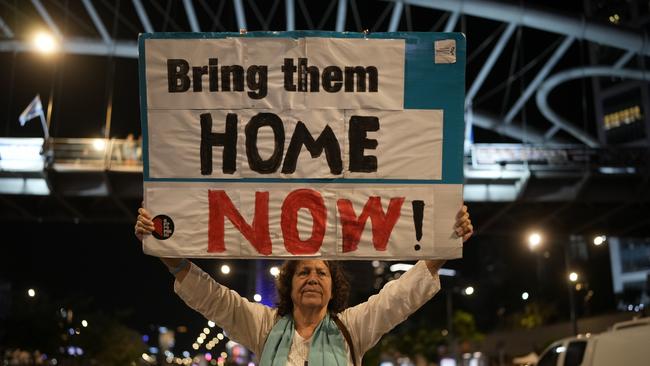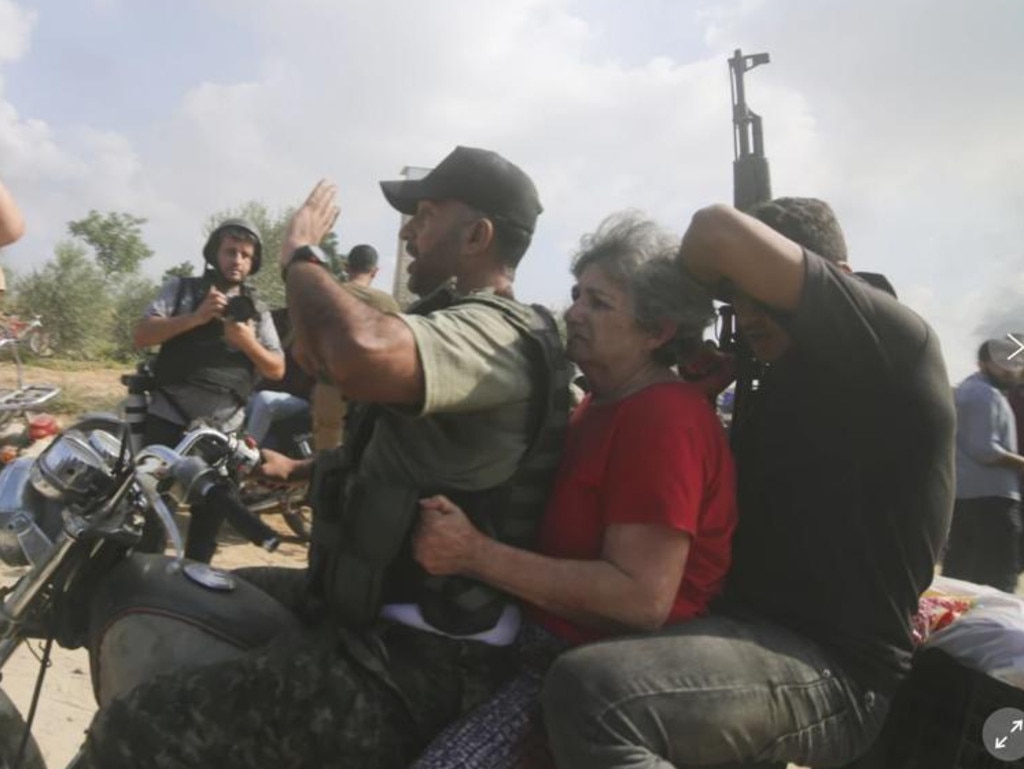
In 2011 Israel released more than 1000 Palestinian prisoners, including 280 who were serving life sentences, many for murdering civilians, in exchange for the young Israeli soldier Gilad Shalit, whom Hamas had kidnapped and kept hostage for five years.
One of those released by Israel in that prisoner swap, Yahya Sinwar, is the leader of Hamas in Gaza and a mastermind of the October 7 outrage in which Hamas and fellow travellers murdered, often after sadistic torture, more than 1200 Israelis. Others involved in that attack were also released in prisoner swap deals.
Nonetheless, although this deal is full of danger and needs to be carried out with great caution, it is both inevitable and necessary that Israel would make every attempt to rescue some of the nearly 240 hostages kept in Gaza.
These hostages include babies, almost certainly at least one newborn, and elderly women. The founding principles of Israel embody the strongest solidarity among citizens and that solidarity involves leaving no citizen behind on the battlefield or in the hands of terrorists and anti-Semites. But it’s an inescapable reality that this deal validates the gruesome utility of taking hostages in the first place. Not only terrorists, but nations who engage in hostage diplomacy – such as China, Russia and Iran – understand this profoundly.
Way back in the 1970s when Palestinian terrorism really got going, Israel was extremely reluctant to negotiate with terrorists and favoured rescue attempts. It had some spectacular successes, such as the astonishing operation in which Israeli commandos rescued more than 100 hostages from Entebbe airport in Uganda in 1976.
But the terrorists soon enough learnt the lesson. When they captured Israelis they dispersed them and kept them as far from Israeli power as possible and surrounded by captors who would kill the hostages in an instant if Israeli soldiers showed up to rescue them.
Since then Israel has paid extravagantly to get back its citizens, mostly in the past its soldiers. In 1983 Israel released 4700 Palestinians and Lebanese held in its jails in exchange for six Israeli soldiers.
On each occasion, terrorists Israel has released have resumed murderous campaigns against Israeli civilians. Nonetheless, these are impossible moral dilemmas for any democratic government.
This new deal, the Israelis say, will not involve the release of senior Palestinian terrorists or those with blood on their hands. However, that may come later. At this stage Hamas is releasing only women and children. If it gets to releasing soldiers or any men, especially of military age, it will want Palestinian fighters and hardened terrorists released in return.
Israel faces other dangers in this deal. Hamas is schedule to release 50 women and children over four days in exchange for 150 Palestinian female prisoners. Those four days will constitute a pause in the fighting. But Israel also has indicated it will extend the pause in fighting for an extra day every time Hamas releases a further 10 hostages. Hamas has already been severely degraded by Israel’s operation and it will have strong motivation to extend the pause in fighting as long as possible.
Combined with the large resumption of humanitarian aid supplies into Gaza, which is certainly necessary on humanitarian grounds, this gives Hamas every opportunity to regroup and resupply. It would also hope that international pressure mounts on Israel, such that it cannot resume its military operation. But something like a quarter of a million Israelis have also been displaced from their homes, near Gaza in the south and near Lebanon, from which Hezbollah is firing rockets at Israeli towns, in the north.
Israel needs to eliminate Hamas control in Gaza not for reasons of retaliation but so that its nation can resume normal life after this operation is concluded.
Israelis, and the civilised world, will rejoice if hostages are released from Gaza. But this conflict has a long way to run.








In agreeing to a prisoner swap, Benjamin Netanyahu’s government is embarking on Israel’s most dangerous and painful step yet in its grim war against the terrorist group Hamas in Gaza.